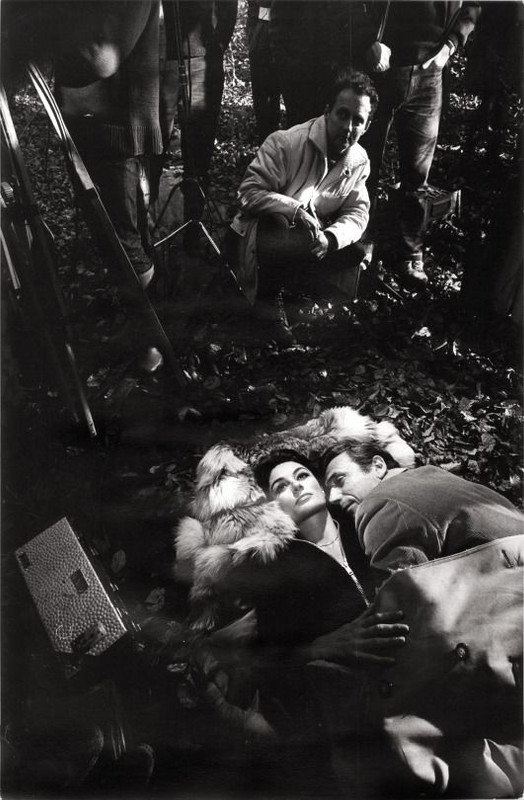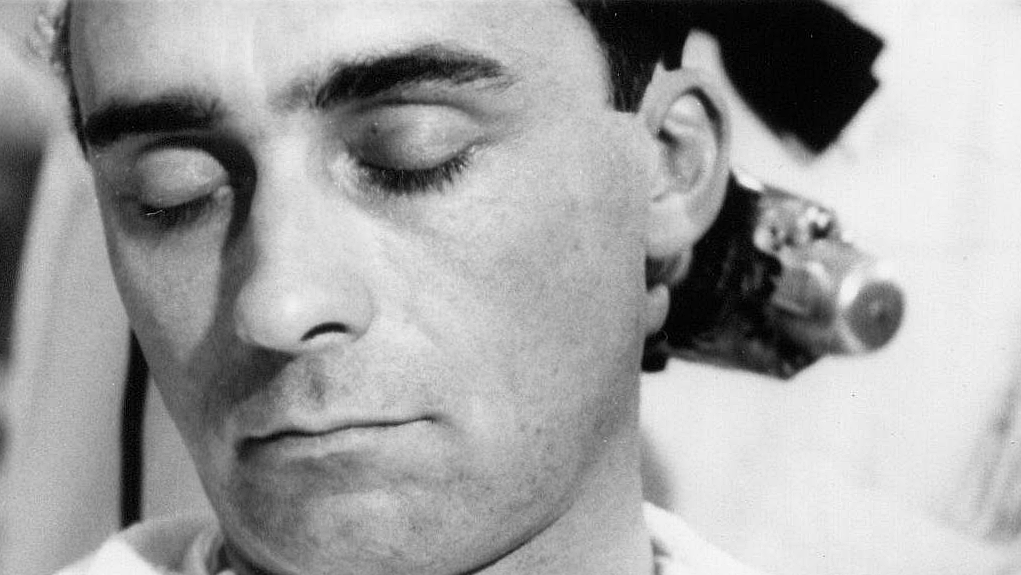Un soir, un train [One Night, a Train] (André Delvaux, 1968)
Mar
18
André Delvaux

Anouk Aimée and Yves Montand in character on a leaf-strewn floor, his head resting on her chest, with director André Delvaux and others surrounding them. DP: Ghislain Cloquet.
A favourite film, director, or producer for Luc Besson's birthday (1959).
Having only seen three of Delvaux's films, I feel I can safely say his work is hypnotic, but not in the common sense. We see a world through both Delvaux's and his protagonists eyes, and experience their duality as one. This displacement is a recurring theme in Delvaux's work, the work of a man raised in one world and speaking the language of another, both worlds bearing the same name, Belgium.
This slow tear is also the theme is his best known film, De man die zijn haar kort liet knippen [The Man Who Had His Hair Cut Short] (1965), in which a schoolteacher loses himself after a pupil graduates. When we think we are firmly seated in Delvaux's universe, we fall back, like that moment just before sleep sets in. And again, in his tragically under-seen Belle from 1973. Now it's a poet who finds a woman living in a ramshackle hut in Belgium's peatland, her language an unknown. With only one main speaker, the duality forms in the poet's words, in his attempts to give her root.
And so do we, the viewers. We hang on to that root, Delvaux's, only to sink back into our own loss of words.
JohanDaisne
Un soir, un train [One Night, a Train] (André Delvaux, 1968)
Mar
20
French Language Day

Mathias (Montand) and Anne (Aimée) walk through a round archway. Both have a different focus and are on opposite sides of the arch as a foreshadowing of their parting. DP: Ghislain Cloquet.
A Walloon language professor and his French set designer fiancée are at an impasse. While his Flemish students vocally protest against more Walloon influence at their uni, the couple – who superficially speak the same #language, #French – struggles to find the right words. They meet, part ways, then find each other again on a train that at morning turns out to be standing still in the middle of nowhere. The man, now without her, disembarks and with two acquaintances who also were on that train tries to find out where he and she are.
André Delvaux's Un soir, un train is a masterpiece about finding the right language in a fractured world.
“Fran.”De man die zijn haar kort liet knippen [The Man Who Had His Hair Cut Short] (André Delvaux, 1965)
Jan
12
freebie: Teacher Appreciation Day

Govert Miereveld (Senne Rouffaer) having his hair cut. DPs: Ghislain Cloquet & Roland Delcour.
A teacher, enthralled by one of his students, gets lost after she graduates.
– Govert Miereveld
Heavy and light, absurd and profane. An absolute recommendation.